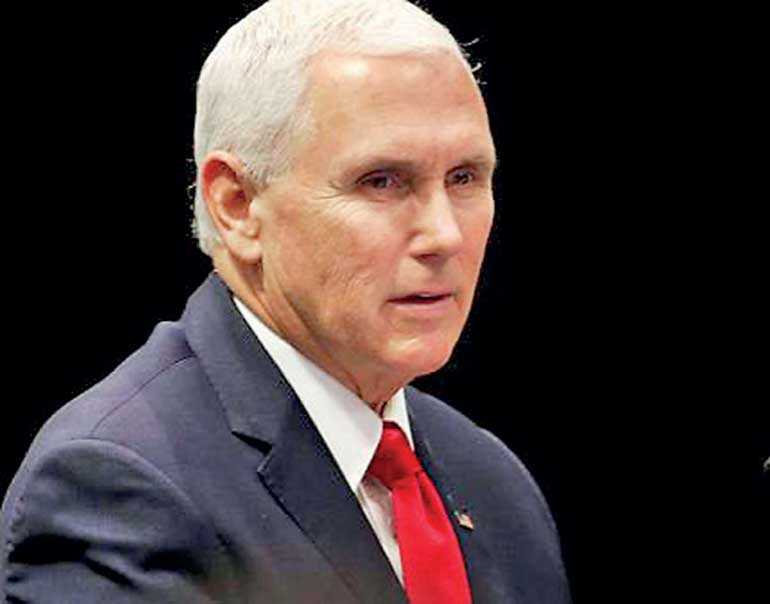Sunday Feb 22, 2026
Sunday Feb 22, 2026
Friday, 16 November 2018 00:00 - - {{hitsCtrl.values.hits}}
 U.S. Vice President Mike Pence speaks during a meeting with ASEAN leaders at the ASEAN-US Summit in Singapore November 15, 2018 - REUTERS
U.S. Vice President Mike Pence speaks during a meeting with ASEAN leaders at the ASEAN-US Summit in Singapore November 15, 2018 - REUTERS
SINGAPORE (Reuters): US Vice President Mike Pence told leaders of Southeast Asian nations on Thursday that there is no place for “empire and aggression” in the Indo-Pacific region, a comment that may be widely interpreted as a reference to China’s rise.
Pence did not mention China in his remarks at the opening of a summit with Association of Southeast Asian Nations (ASEAN) in Singapore, but stressed that small countries as well as large ones should be allowed to prosper in the Indo-Pacific.
“Like you, we seek an Indo-Pacific in which all nations, large and small, can prosper and thrive – secure in our sovereignty, confident in our values, and growing stronger together,” he said. “We all agree that empire and aggression have no place in the Indo-Pacific.”
He said Washington had taken action to promote this vision, including steps to spur private investment in infrastructure and a pursuit of trade that is “free, fair, and reciprocal”.
The vice president also highlighted the United States’ “pressure campaign” on North Korea, its “commitment to uphold the freedom of the seas and skies” and determination to ensure that Southeast Asian nations are secure in their sovereign borders, on land, and at sea in the digital world.
Pence’s comments follow a major speech in October in which he flagged a tougher approach by Washington towards Beijing, accusing China of “malign” efforts to undermine US President Donald Trump and reckless military actions in the South China Sea.
The United States has conducted a series of “freedom of navigation” exercises in the contested South China Sea, angering Beijing, which says the moves threaten its sovereignty. China’s claims in the South China Sea, through which some $3 trillion of ship-borne trade passes each year, are contested by Brunei, Malaysia, the Philippines, Taiwan and Vietnam.
Beijing and Washington are locked in a trade war in which they have imposed increasingly severe rounds of tariffs on each other’s imports.